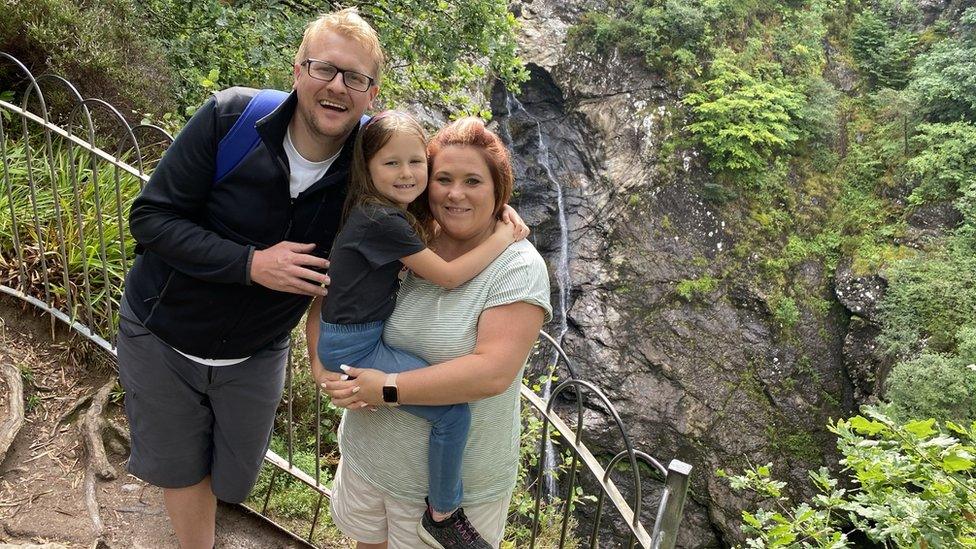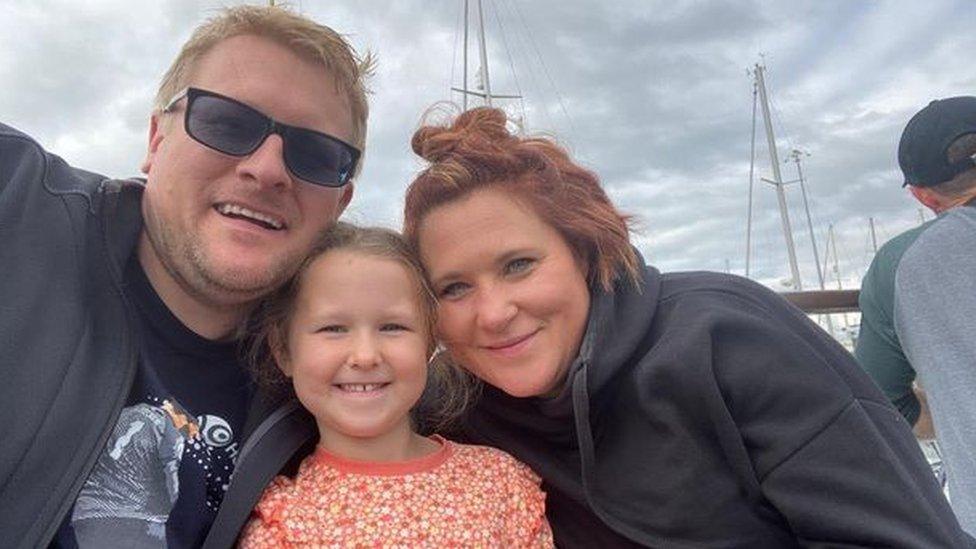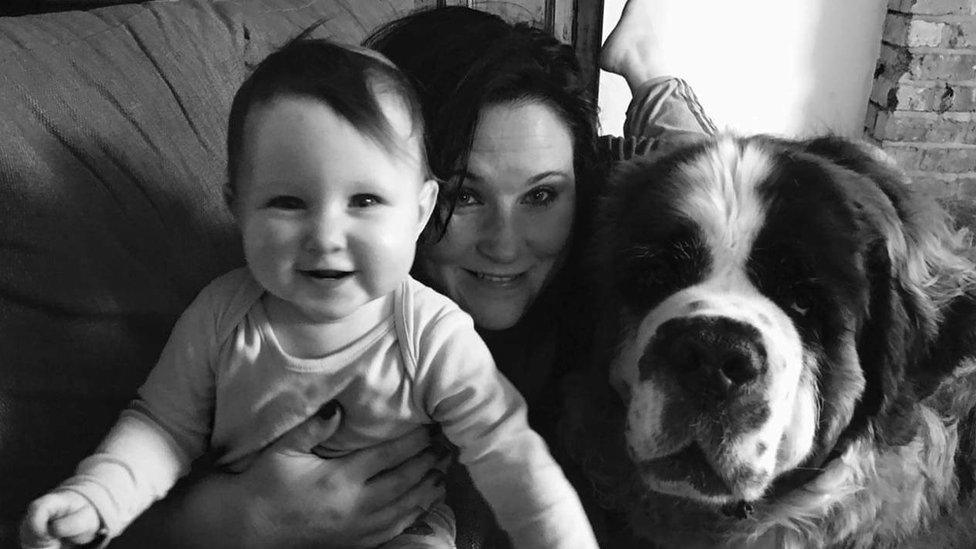Marie Curie: 'The hospice isn't grim, it's full of love'
- Published

John Atkins said Marie Curie was a "part of our life story"
A grieving husband said he thought he would never want to return to the place where his wife died but he was wrong.
Ros Atkins died in October, aged 43, at Liverpool's Marie Curie Hospice after being diagnosed with bowel cancer.
Her husband John said staff could not have done more, describing it as "a place full of love".
He has opened up about his wife's final moments in a BBC Lifeline Appeal in a bid to raise funds for Marie Curie, the end of life charity.
John said he and his late wife, who had been married for 15 years, knew they were somewhere special within an hour of arriving at the hospice.
"Every single person in there, from the person coming around with the cups of tea through to the receptionists Lyn and Rita, the ambulance people that were coming in, everyone was just so nice," he said.
"That's why I can't praise them enough. It was just amazing."
Head teacher Ros found out that she had stage four bowel cancer on her birthday and was told she could have between 12 months and five years to live.
She was referred to the hospice, which has been caring for the people of Liverpool for 60 years.

Ros was admitted to the Marie Curie Hospice in Liverpool
John recalled how the support he was given when he had to break the news of her death to their six-year-old daughter Maggie was invaluable.
"I said to her: 'Do you want to go and see Mummy?' She said 'yes'," he said.
"When we went inside, Maggie said, 'No, no, I don't want to go in'. She started crying outside the room.
"At that point, fortunately, Maggie's Marie Curie counsellor Rachel came down.
"They had a chat, then Maggie said, 'I want to go in'.
"So, she went in and saw her mummy, said, "I love you" and "goodnight".
"Rachel gave her little teddies - one for her and one for Ros. Maggie put the teddy on Ros' bed with a little card."

Help and support
If you're affected by any of the issues in this article you can find details of organisations who can help via the BBC Action Line.

Both John and Maggie now have weekly bereavement counselling at the hospice.
"We take little bars of chocolate - one for Maggie and one for Rachel - as a little treat and she gets spoilt rotten in there," he said.
"Staff come out with cake for her. They're all lovely and they make a fuss over her.
"She wears a Marie Curie daffodil every day on her school cardigan. I've got one on my coat as well."

Ros was "a natural with kids", her husband recalled
John is now determined to raise vital funds for the hospice and has already raised enough to pay for the hospice for a day.
"The hospice doesn't feel like a grim place, it's a place full of love," he said.
"When Ros was admitted, we were swamped with attention, people offering us cups of tea and checking Ros' pain and medication.
"They couldn't have done more. Ros said: 'I feel happy here and I'm glad we've come here'."
The BBC Lifeline Appeal is a 10-minute programme broadcast, highlighting the work of a selected charity each month, appealing for donations to support its activities.
You can watch the BBC Lifeline appeal on behalf of Marie Curie on BBC iPlayer.

Why not follow BBC North West on Facebook, external, Twitter, external and Instagram, external? You can also send story ideas to northwest.newsonline@bbc.co.uk
Related topics
- Published22 March 2023
